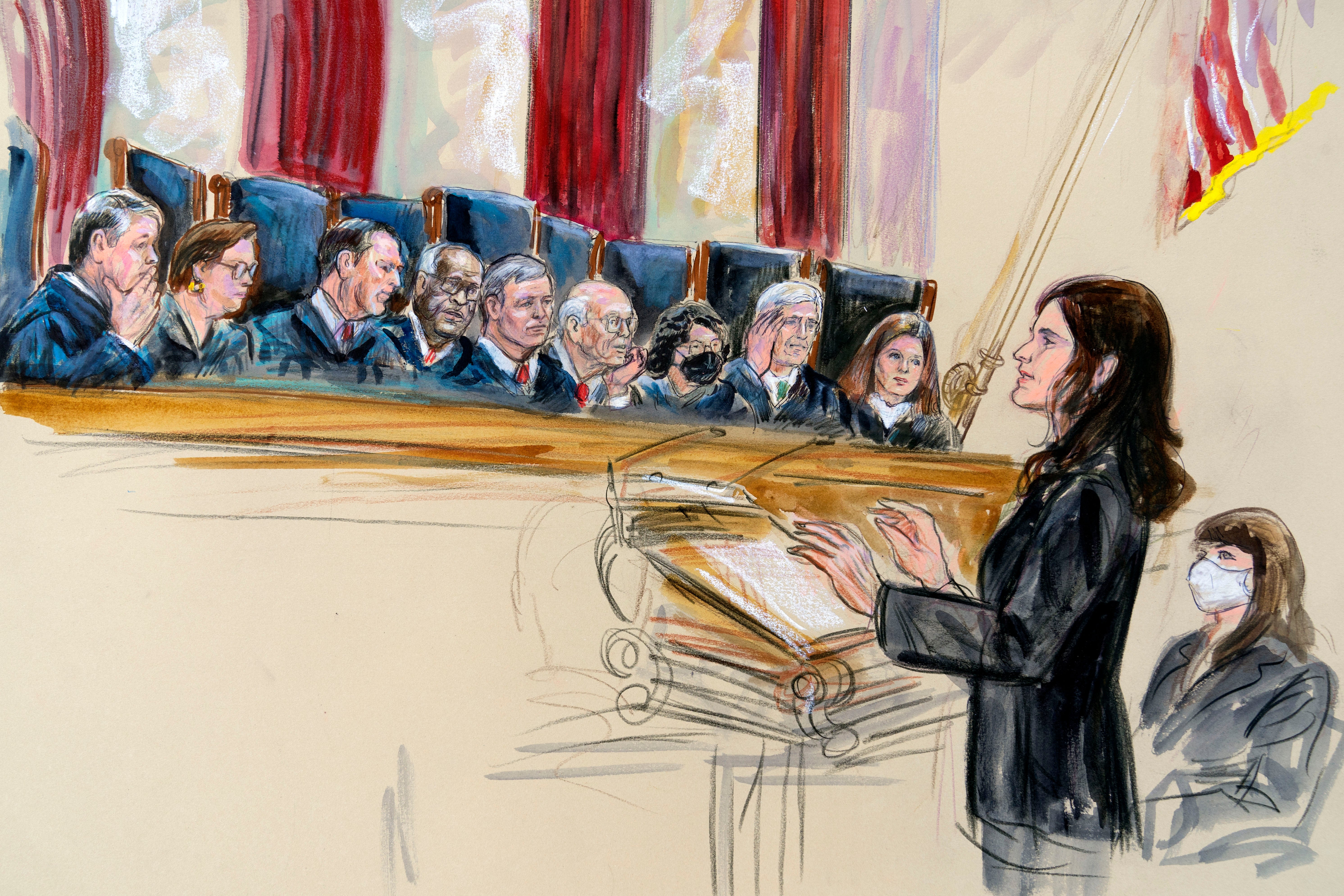Remarks by 9 justices indicate how they lean on abortion
The Supreme Court has heard arguments in which the court was asked to overturn a nationwide right to abortion that has existed for nearly 50 years

The Supreme Court on Wednesday heard arguments in which the court was asked to overturn a nationwide right to abortion that has existed for nearly 50 years.
The fate of the court’s 1973 Roe v. Wade decision legalizing abortion throughout the United States and its 1992 ruling in Planned Parenthood v. Casey, which reaffirmed Roe, probably won’t be known until late June.
But during nearly two hours of arguments conservative justices indicated they had questions about the court's current abortion framework. The justices were being asked to overrule the two seminal decisions in the context of a Mississippi law that bans abortion after 15 weeks. The court's Roe and Casey precedents say a state can regulate but not ban abortion before the point of viability, at about 24 weeks. All six conservative justices, including three appointed by former President Donald Trump indicated they would uphold Mississippi’s law.
In their writings and statements before Wednesday, Justice Clarence Thomas had been the only justice to call openly for overruling Roe and Casey.
Here are some of the things the justices said during arguments:
CONSERVATIVES:
Chief Justice John Roberts called a 15-week ban “not a dramatic departure from viability.” He said: “If you think ... that women should have a choice to terminate their pregnancy, that supposes that there is a point at which they’ve had the fair choice, opportunity to choice, and why would 15 weeks be an inappropriate line? Because viability, it seems to me, doesn’t have anything to do with choice. But, if it really is an issue about choice, why is 15 weeks not enough time?”
Justice Clarence Thomas suggested the right to abortion appears nowhere in the Constitution: “If we were talking about the Second Amendment, I know exactly what we’re talking about. If we’re talking about the Fourth Amendment, I know what we’re talking about because it’s written. It’s there. What specifically is the right here that we’re talking about?”
Justice Samuel Alito said people on both sides of the abortion issue have said the court's viability line “really doesn't make a lot of sense.” He suggested a woman still “has the same interest in terminating her pregnancy after the viability line has been crossed.” He added: “The fetus has an interest in having a life, and that doesn’t change, does it, from the point before viability to the point after viability?”
Justice Neil Gorsuch asked what the court should do if it were to “reject the viability line.” "Do you see any other intelligible principle that the court could choose?" he asked the Biden administration's top Supreme Court lawyer, who was arguing that Mississippi's ban should be struck down.
Justice Brett Kavanaugh suggested overruling precedent has been an important part of the court's history: “If you think about some of the most important cases, the most consequential cases in this court’s history, there’s a string of them where the cases overruled precedent." Kavanaugh cited cases that extended rights beyond where they were previously, including those that outlawed segregation and said gay couples have a right to marry. “If we think that the prior precedents are seriously wrong, if that, why then doesn’t the history of this court’s practice with respect to those cases tell us that the right answer is actually a return to the position of neutrality and — and not stick with those precedents in the same way that all those other cases didn’t?”
Justice Amy Coney Barrett suggested that so-called safe haven laws in all 50 states that allow mothers to relinquish parental rights mean women can’t be forced into motherhood. She asked about states “requiring the woman to go 15, 16 weeks more" past the point of viability “and then terminate parental rights at the conclusion.” ”Why didn’t you address the safe haven laws and why don’t they matter?" she asked a lawyer arguing against Mississippi's ban.
LIBERALS:
Justice Stephen Breyer said that where the court is overturning a watershed case like Roe it “better be damn sure” before doing so. He quoted the Casey case about the dangers of overruling precedent, saying: “To overrule under fire in the absence of the most compelling reason, to reexamine a watershed decision, would subvert the court’s legitimacy beyond any serious question."
Justice Sonia Sotomayor said reversing Roe and Casey would damage the court. She asked: “Will this institution survive the stench that this creates in the public perception that the Constitution and its reading are just political acts?”
Justice Elena Kagan said of the current case: “I guess what strikes me when I look at this case is that, you know, not much has changed since Roe and Casey, that people think it’s right or wrong based on the things that they have always thought it was right and wrong for.” Since Roe, however, there's been “50 years of water under the bridge, 50 years of decisions saying that this is part of our law, that this is part of the fabric of women’s existence in this country.”
Subscribe to Independent Premium to bookmark this article
Want to bookmark your favourite articles and stories to read or reference later? Start your Independent Premium subscription today.
